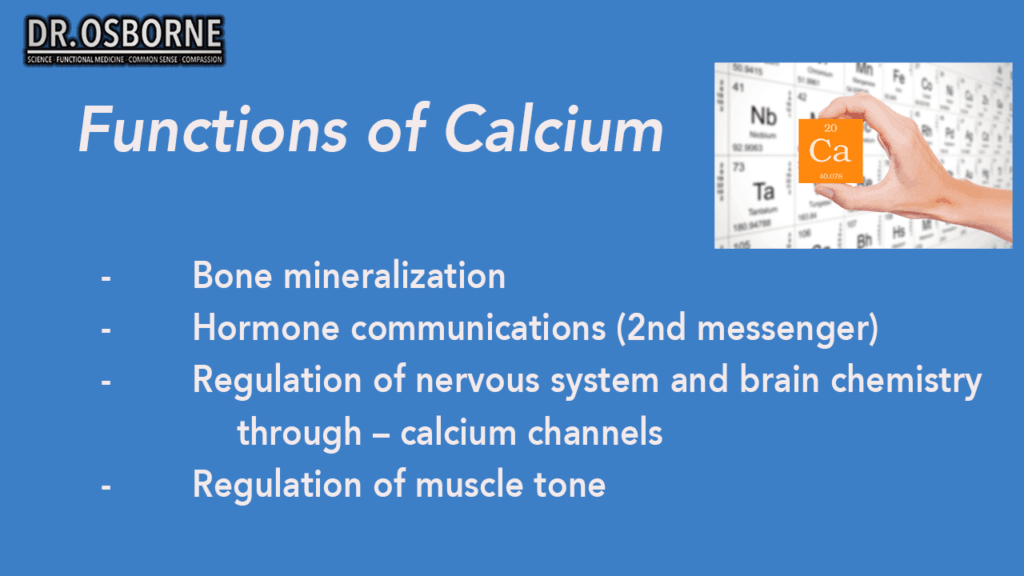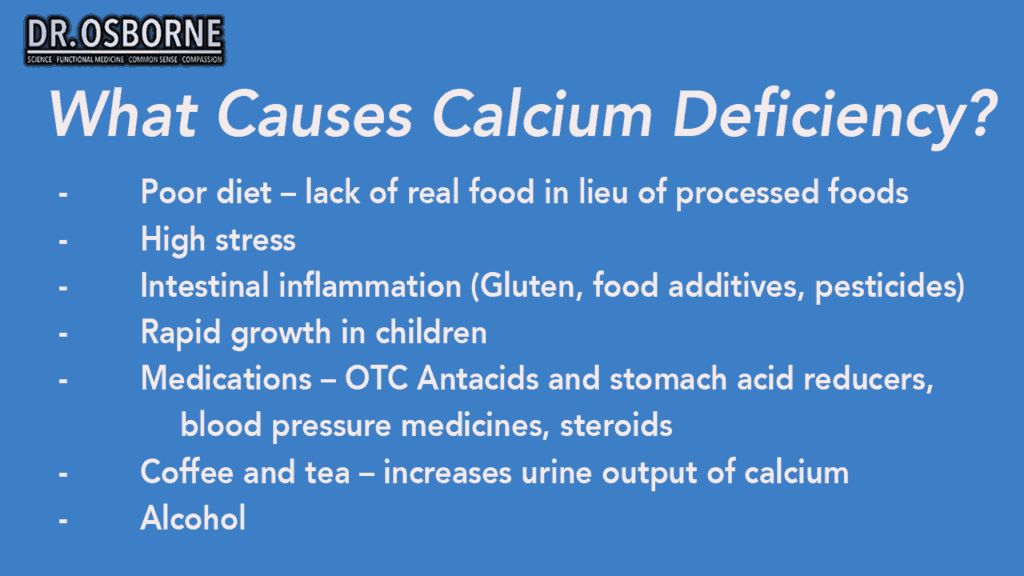new to the gluten free journey?
new to the gluten free journey?

 Calcium is the most prevalent mineral in the human body. It is essential, meaning the body cannot synthesize it, and it is vital for several functions within the body. And because gluten can damage the intestine causing malabsorption of nutrients, those with gluten sensitivity should be tested for calcium deficiency on a regular basis. Understanding the functions of calcium and what it does for your health will shed some light on why…
Calcium is the most prevalent mineral in the human body. It is essential, meaning the body cannot synthesize it, and it is vital for several functions within the body. And because gluten can damage the intestine causing malabsorption of nutrients, those with gluten sensitivity should be tested for calcium deficiency on a regular basis. Understanding the functions of calcium and what it does for your health will shed some light on why…
Contents
Toggle It’s common knowledge that calcium is beneficial for bone mineralization. In fact, 99% of the mineral in the body resides within the bones. The other critical 1% is found in the serum of plasma. If this level were to ever drop, the body would simply pull it from the bone.
Apart from bone mineralization, calcium has an essential role as a hormone messenger. This means that calcium is responsible for communicating hormonal messages to your DNA for their functions to be expressed. Bottom line, hormones are unable to work well without the assistance of calcium.
It’s common knowledge that calcium is beneficial for bone mineralization. In fact, 99% of the mineral in the body resides within the bones. The other critical 1% is found in the serum of plasma. If this level were to ever drop, the body would simply pull it from the bone.
Apart from bone mineralization, calcium has an essential role as a hormone messenger. This means that calcium is responsible for communicating hormonal messages to your DNA for their functions to be expressed. Bottom line, hormones are unable to work well without the assistance of calcium.
 Another myth most are taught from a young age is that all of this nutrient comes from dairy. While it is true that dairy is a great source of it, it can be challenging to find dairy produced by cows that are not treated with chemicals, hormones, and fed genetically modified grain. Additionally, many with gluten issues commonly also react to dairy because the protein casein is similar to gluten proteins. Some people are allergic to dairy or choose to live a vegan or vegetarian lifestyle.
In these cases, it’s a necessity to find other sources of dairy, and fortunately, there are many out there. These include sardines, salmon, and bone broth (for non-vegan/vegetarians), cruciferous vegetables like broccoli, cauliflower, cabbage, and bok choy, almonds, figs, and dark leafy greens. A word of caution with leafy greens, however, is that they contain oxalate which can hamper the absorption of calcium.
Another myth most are taught from a young age is that all of this nutrient comes from dairy. While it is true that dairy is a great source of it, it can be challenging to find dairy produced by cows that are not treated with chemicals, hormones, and fed genetically modified grain. Additionally, many with gluten issues commonly also react to dairy because the protein casein is similar to gluten proteins. Some people are allergic to dairy or choose to live a vegan or vegetarian lifestyle.
In these cases, it’s a necessity to find other sources of dairy, and fortunately, there are many out there. These include sardines, salmon, and bone broth (for non-vegan/vegetarians), cruciferous vegetables like broccoli, cauliflower, cabbage, and bok choy, almonds, figs, and dark leafy greens. A word of caution with leafy greens, however, is that they contain oxalate which can hamper the absorption of calcium.
 Even though bone tissue is very rich in calcium, cellular calcium deficiencies are quite common. Especially in those with gluten issues. That’s why it is important to know the signs to look for. Some of the symptoms are so common, they can easily be attributed to other issues making treatment delayed and symptoms worse.
One of the most common signs of a deficiency, especially when combined with dehydration is muscle spasms, cramps, or tetany. Furthermore, a person with a deficiency may have fatigue in the muscles, as well as burning and pain, brain fog or recall issues, a short temper, irritability, agitation, less flexibility, excitable nerves, and a dampened hormone response.
Even though bone tissue is very rich in calcium, cellular calcium deficiencies are quite common. Especially in those with gluten issues. That’s why it is important to know the signs to look for. Some of the symptoms are so common, they can easily be attributed to other issues making treatment delayed and symptoms worse.
One of the most common signs of a deficiency, especially when combined with dehydration is muscle spasms, cramps, or tetany. Furthermore, a person with a deficiency may have fatigue in the muscles, as well as burning and pain, brain fog or recall issues, a short temper, irritability, agitation, less flexibility, excitable nerves, and a dampened hormone response.
 For those not getting enough calcium, your diet should be the first thing that changes. If one is still unable to get the recommended amount through proper nutrition, the next step is supplements. Calcium supplements should not exceed 1,000 – 1,200 milligrams a day and should be taken with a 2:1 ratio with magnesium. It is also important to check the label for fillers as they are sometimes a source of hidden gluten contamination.
When choosing a supplement, consider Calcium Citrate, Malate, or Orotate. Citrate is one of the best for getting absorbed in the GI tract, while Orotate works well at the intracellular level. Try to avoid supplements with Calcium Carbonate and if supplementing causes lethargy and fogginess, discontinue use immediately.
For those not getting enough calcium, your diet should be the first thing that changes. If one is still unable to get the recommended amount through proper nutrition, the next step is supplements. Calcium supplements should not exceed 1,000 – 1,200 milligrams a day and should be taken with a 2:1 ratio with magnesium. It is also important to check the label for fillers as they are sometimes a source of hidden gluten contamination.
When choosing a supplement, consider Calcium Citrate, Malate, or Orotate. Citrate is one of the best for getting absorbed in the GI tract, while Orotate works well at the intracellular level. Try to avoid supplements with Calcium Carbonate and if supplementing causes lethargy and fogginess, discontinue use immediately.
Stay up-to-date with the latest articles, tips, recipes and more.

*These statements have not been evaluated by the Food and Drug Administration. This product is not intended to diagnose, treat, cure or prevent any disease.
If you are pregnant, nursing, taking medication, or have a medical condition, consult your physician before using this product.
The entire contents of this website are based upon the opinions of Peter Osborne, unless otherwise noted. Individual articles are based upon the opinions of the respective author, who retains copyright as marked. The information on this website is not intended to replace a one-on-one relationship with a qualified health care professional and is not intended as medical advice. It is intended as a sharing of knowledge and information from the research and experience of Peter Osborne and his community. Peter Osborne encourages you to make your own health care decisions based upon your research and in partnership with a qualified health care professional.